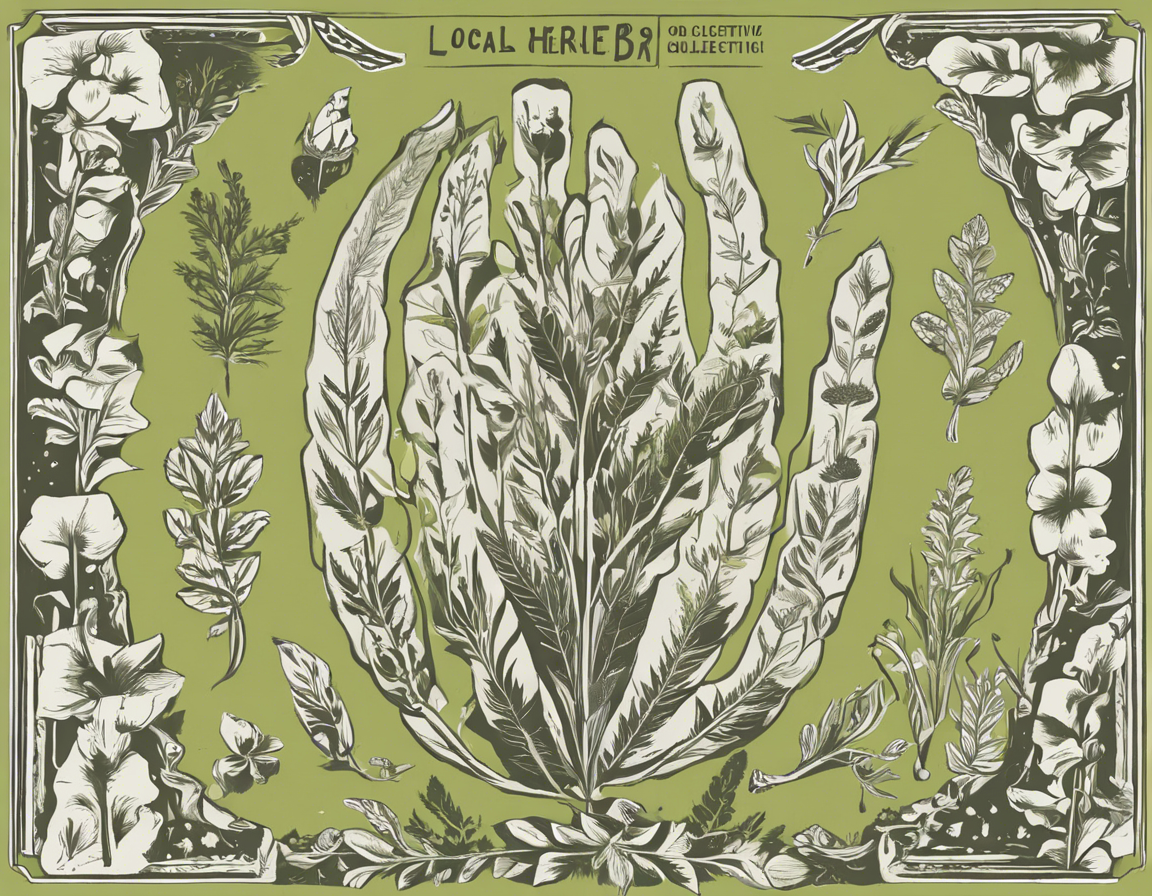Introduction:
In today’s fast-paced world, more and more people are turning to herbal remedies and natural healing practices to promote their well-being. One fascinating aspect of this trend is the emergence of local herb collectives, where communities come together to grow, harvest, and share knowledge about healing herbs. These collectives serve as a valuable resource for those seeking to connect with the natural world and harness the power of plants for health and healing.
What is a Local Herb Collective?
A local herb collective is a community-based group that focuses on cultivating and using healing herbs for a variety of purposes, including medicinal, culinary, and spiritual. Members of the collective typically come together to grow herbs, share knowledge and skills, and support each other in their herbal journey. These collectives can take many forms, from informal groups of friends and neighbors to more structured organizations with rules and bylaws.
Benefits of Joining a Local Herb Collective:
-
Community Connection: One of the key benefits of joining a local herb collective is the sense of community and connection it provides. By coming together with like-minded individuals, members can share their passion for herbs and learn from each other’s experiences.
-
Herbal Education: Local herb collectives often offer workshops, classes, and other educational opportunities to help members deepen their knowledge of herbs and their healing properties. This hands-on learning experience can be invaluable for those looking to expand their herbal skillset.
-
Access to Fresh Herbs: By pooling resources and sharing the work of growing herbs, members of a local herb collective can enjoy a steady supply of fresh, locally-grown herbs. This not only ensures quality and potency but also helps reduce costs compared to buying herbs from commercial suppliers.
-
Environmental Sustainability: Growing herbs locally reduces the carbon footprint associated with transportation and packaging. By cultivating herbs in their own community, members of a local herb collective can contribute to a more sustainable and eco-friendly way of living.
How to Start a Local Herb Collective:
-
Find Like-Minded Individuals: Reach out to friends, neighbors, or members of local gardening or herbalism groups who share an interest in herbs. Building a core group of individuals with a passion for herbs is the first step in establishing a local herb collective.
-
Define Goals and Mission: Determine the purpose of your herb collective – whether it’s focused on medicinal herbs, culinary herbs, or a combination of both. Establishing a clear mission statement will help guide the direction of the collective and attract members who align with its values.
-
Create a Shared Space: Whether it’s a community garden plot, a backyard herb garden, or a shared greenhouse, having a physical space where members can grow and harvest herbs together is essential for a local herb collective. Consider the needs and preferences of members when selecting a location.
-
Set Guidelines and Responsibilities: Establish guidelines for membership, including expectations around herb care, harvesting practices, and sharing resources. Clearly defining roles and responsibilities will help ensure that the collective functions smoothly and harmoniously.
Common Herbs Grown in Local Herb Collectives:
-
Lavender: Known for its calming properties, lavender is a popular herb in local herb collectives for its versatility in culinary, medicinal, and aromatherapy applications.
-
Mint: With its refreshing flavor and digestive benefits, mint is a staple herb that thrives in community gardens and herb plots.
-
Chamomile: This gentle herb is prized for its relaxing properties and is commonly used in teas and tinctures for its soothing effects on the nervous system.
-
Basil: A favorite culinary herb, basil is easy to grow and can be used in a variety of dishes, from pasta sauces to pesto.
-
Calendula: Known for its vibrant orange flowers, calendula is valued for its anti-inflammatory and skin-healing properties, making it a popular choice for herbal salves and skincare products.
FAQs (Frequently Asked Questions about Local Herb Collectives):
- How can I find a local herb collective in my area?
-
You can start by checking online community forums, social media groups, or local herbalism associations. You can also reach out to gardening clubs or organic food cooperatives, as they may have information on existing herb collectives.
-
Do I need prior experience with herbs to join a local herb collective?
-
Not necessarily. Local herb collectives welcome individuals of all skill levels, from beginners to experienced herbalists. The emphasis is on learning and sharing knowledge within a supportive community.
-
What are some common activities or events organized by local herb collectives?
-
Local herb collectives often host herb walks, workshops on herbal medicine making, gardening days, seed exchanges, and community herbal clinics where members can receive herbal consultations.
-
Can I sell herbs or herbal products through a local herb collective?
-
This depends on the guidelines and regulations of the specific herb collective. Some collectives may allow members to sell surplus herbs or products within the community, while others may focus solely on sharing resources and knowledge.
-
How can I contribute to a local herb collective if I don’t have space to grow herbs?
- There are many ways to get involved in a local herb collective, even if you don’t have a garden. You can participate in educational events, volunteer at community herb gardens, help with organizing workshops, or contribute your skills in other ways, such as graphic design or social media management.
Conclusion:
Joining a local herb collective can be a rewarding experience for anyone interested in herbs, natural healing, and community connection. By coming together to grow, harvest, and share knowledge about healing herbs, members of these collectives can not only deepen their understanding of herbal medicine but also forge meaningful connections with like-minded individuals. Whether you’re a seasoned herbalist or a beginner looking to explore the world of herbs, a local herb collective offers a supportive and enriching environment to nurture your herbal journey.

